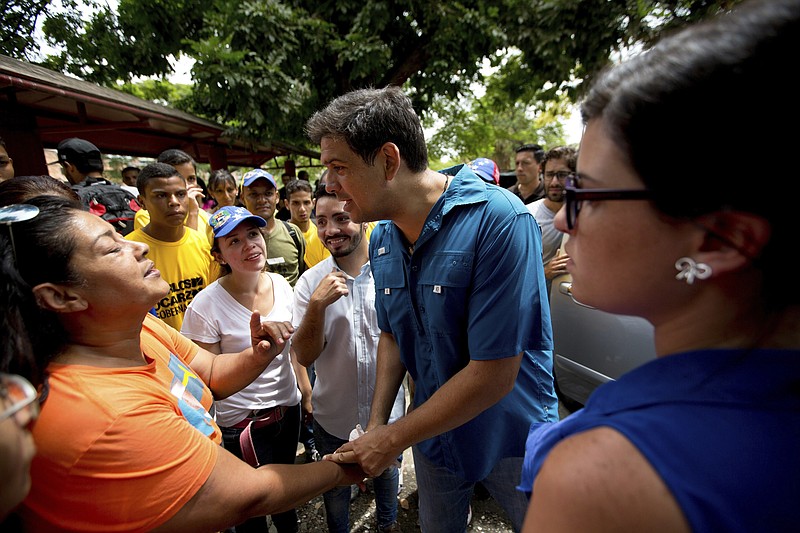GUARENAS, Venezuela (AP) - Carlos Ocariz was pressing the flesh at a bus stop, trying to persuade potential voters to choose him as their next governor, when a shouted insult from a young man in a passing car pierced the air: "Sellout!"
After a startled pause, Ocariz continued chatting up passengers preparing to board one of the government's new red buses in Miranda, on his mission to keep Venezuela's second most populous state under opposition control.
"Can I count on your support?" he asked.
Polls project opposition candidates like Ocariz are likely to win a majority of the 23 governorships up for grabs Sunday. If opponents of President Nicolas Maduro win a decisive victory, it would be the first time since 2000 the late President Hugo Chavez's ruling socialist party faces a nation led primarily by opposition governors.
Yet Ocariz's experience shows, even amid widespread dissatisfaction with Maduro as the country struggles with crippling inflation and shortages of food, medicine and other goods, opposition candidates have had their work cut out for them. And Maduro's allies are hoping for a strong showing to prove they remain competitive.
Potentially confusing changes made by the government-friendly National Electoral Council could lead some to cast a vote for a candidate no longer in the running or show up at a voting center that was relocated at the last minute. And disenchanted voters may fail to turn out in large numbers, turned off from politics after months of deadly anti-government protests that did not loosen Maduro's control.
Yraide Albano, a 51-year-old lawyer, said she has felt disappointment and depression but still intends to vote and is trying to persuade her son to do the same. Analysts also said if the opposition does gain a majority of governorships, up from the three it holds currently, a new, all-powerful constitutional assembly that took power in August has the authority to bar the new governors from assuming office or exerting any real influence - if it chooses.
Such a move would not be entirely unprecedented. After the opposition won a majority in congress in 2015, the government-stacked Supreme Court repeatedly nullified legislation passed by the body. More recently, the constitutional assembly has declared itself superior to congress and taken over its powers, and Maduro has threatened to replace any new governors who don't submit to the assembly's rule.

